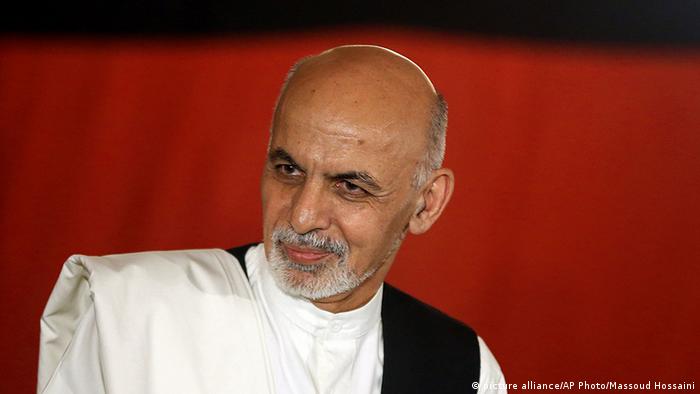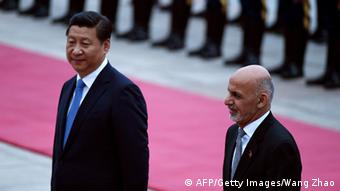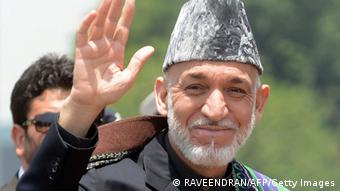The new Afghan President Ashraf Ghani seems to have taken a different approach to his country's foreign policy. Experts say the challenge is to maintain a balance in ties with all regional and international players.
Since becoming Afghanistan's President at the end of September, Ghani has visited Saudi Arabia, China and Pakistan. Most recently, he also attended the South Asian Association for Regional Cooperation (SAARC) summit in Nepal's capital, Kathmandu. In talks with foreign leaders during his official trips abroad, Ghani mainly focused on Afghan peace process, economic cooperation, regional security and geopolitics.
The countries which Ghani chose for his first official trips, experts say, indicate the new president is taking a different strategic approach to that of his predecessor Hamid Karzai to resolve the Taliban problem. Ghani aims to use China's influence over Pakistan and, wants Beijing to raise pressure on Islamabad to bring the Taliban to the negotiating table, analysts argue.
The president received assurances from both his Chinese as well as Pakistani counterparts of their support for the Afghan peace process.
Failed attempts
The Taliban have been fighting a guerrilla war against the government in Kabul and its international allies for over a decade. Afghanistan accuses Pakistan of supporting the insurgents and using them as a strategic tool to counter Indian influence in Afghanistan. Islamabad, however, denies these claims.
During his time in office, former Afghan President Hamid Karzai failed to engage in any fruitful peace talks with the Taliban leadership, who are believed to have hideouts in Pakistan's border regions with Afghanistan. Although Karzai leaned on the US and Pakistani support in the peace process, he strictly insisted on an Afghan-led initiative.
Washington's efforts at initiating Afghan peace talks paid off when the Taliban opened an office in the Qatari capital Doha in June 2013, but president Karzai criticized the move to set up a Taliban base in Qatar and called for the peace talks to be shifted immediately to Afghanistan.
At the same time, Karzai - who remained close to India during his presidency - also tried not to compromise New Delhi's position in talks with the Taliban. Indian authorities have remained skeptical of the Taliban as they view the group as Pakistan's strategic bargaining chip in Afghanistan.
A different approach
But unlike Karzai, President Ghani seems to have a more China-centered foreign policy, Said Massud, Kabul University lecturer and Afghan political analyst, told DW, adding that going to Beijing before visiting New Delhi was a "planned strategic move."
Massud, however, said that the president should maintain a degree of balance in his foreign policy in a way that it satisfies all the players that have interests in the country. "Failing to do so could lead to disastrous consequences," he warned.
Abdul Ghafoor Liwal, an expert on constitutional law and director of the Kabul-based Regional Studies Center, also believes there have been some changes in Afghanistan's foreign policy since the new president took office. Liwal, however, stressed that Ghani's visit to China was more a coincidence than a strategic move.
The analyst, however, highlighted two major changes in Afghanistan's foreign policy under the new president. "The first change is that Ghani wants to have a more institutionalized foreign policy which was lacking during the last 13 years. Our foreign policy was not stable under President Karzai and was subject to changes based on personal preferences. The second one is an effort to maintain a balance in ties with all regional and international players," Liwal underlined.
But balancing relations with major regional and international players, the expert argues, is "difficult or in some cases even impossible," and it all depends on the team which President Ghani will assemble to implement his government's foreign policy.



No comments:
Post a Comment